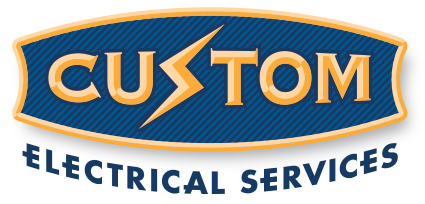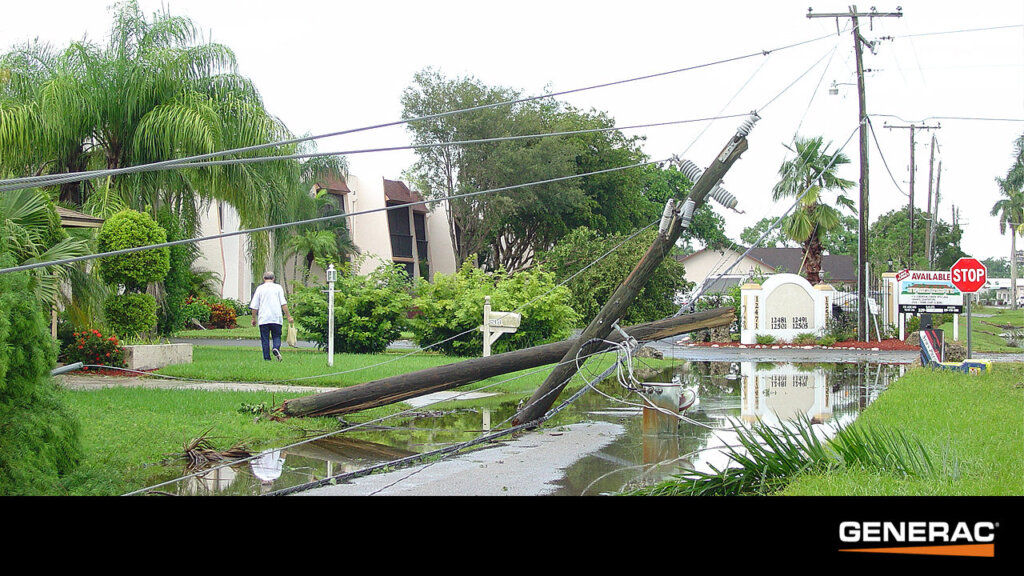Power surges can interrupt the supply of electricity to your home and present a significant safety risk. Understanding how power surges happen and how to prevent them can protect your home and electrical devices and ensure your family continual, safe access to power. This post explores power surges, their causes, and the proactive measures you can take to prevent surges in your property.
Watch for These Power Surge Signs
Recognizing the signs of a recent power surge or that a power surge is imminent can help you determine your response.
Tripped circuit breakers
Tripped circuit breakers and the loss of power to an appliance is usually the first sign you’ll notice.
Flickering lights
Flickering or dimming lights indicate intermittent power to the lighting source and potential damage to connected wiring.
Burning odor
In severe surges, the jolt of electricity burns through wiring and damages devices. If you notice the smell of burnt plastic or see scorch marks around an outlet, it’s a clear indicator of a power surge.
Buzzing noise
When circuitry is overloaded and experiencing a high power load, you’ll hear a slight buzzing sound from that area of the home. Schedule a service call immediately with a local electrician if you notice buzzing noises from the circuit breaker or an outlet. This could represent a fire risk and you’ll need to get the all clear from a licensed electrical contractor before deciding how to proceed.
What are the Main Causes of Power Surges?
A power surge can occur with little warning. However, there is clear research showing the most common causes of power surges in homes across the country. These causes include:
Faulty Wiring
The wiring in your home must be organized and designed to distribute the electrical load efficiently. Wiring that has insulation damage or is otherwise exposed to the elements cannot provide electrical resistance or load control. This is a common issue in homes with aluminum wiring, where connections degrade and loosen over time, allowing for power surges.
Wiring that has been previously damaged and weakened is also susceptible to power surges and so if you’ve had a previous wiring issue in the home, ask your local electrician for a comprehensive inspection to ensure your wiring is safe and performs optimally.
Electrical Overloads
Electrical overloads occur when one appliance draws a large amount of power in a short amount of time. The electricity each appliance draws adds to the load on the circuit, and when the load exceeds the rating for the circuit a power surge can occur.
Circuits without a breaker can overheat during an overload, melting the wire and potentially leading to an electrical fire. Overloads are more common in homes relying on extension cords to plug in multiple appliances to one outlet.
Lightning Storms
In rare cases, lightning storms may cause a power surge that spikes the electrical voltage going to your home’s circuitry. Lighting can access the circuitry through a cable line or satellite dish, potentially damaging any appliances plugged into your home’s wiring at the time of the strike.
What Can I Do to Prevent Power Surges?
While you cannot predict when an storm might cause an electrical surge, there are proactive steps you can take to ensure your home and appliances are protected from a swift voltage increase. Below are a few measures our Iowa electricians recommend for power surge prevention:
Use appliance grade surge protectors
Surge protectors should be installed on all large appliances in the home. Install specifically designed surge protectors at the outlets of your home refrigerator, washer, dryer and air conditioner to help protect your most important home equipment from potential power failure after a surge.
Consider whole-home surge protection
Whole home surge protection is a great option if you’re comparing the cost and logistics of installing multiple surge protectors around the home. Whole home surge protection is also well-suited to homes in which your expensive electrical equipment such as HVAC units are hard-wired in. Whole home surge protectors can often protect equipment that would otherwise cost tens of thousands of dollars to replace.
Book a home electrical inspection
While proactive measures such as surge protector installation can help secure your property’s appliance, there is still an inherent risk within homes with older or damaged electrical wiring and panels. Your local electrician can review your circuitry and test voltage levels within your home. They can also evaluate how much demand is being placed on your system from the various appliances in the property.
After the inspection they then make recommendations for panel upgrades and wiring changes to improve both the safety and electrical efficiency of your system.
Book Electrical Analysis with Custom Electrical Services
Our team at Custom Electrical Services is here to guide you in preventing power surges throughout the home. Book an electrical inspection with our Des Moines electricians to analyze the safety and performance of your home equipment.



